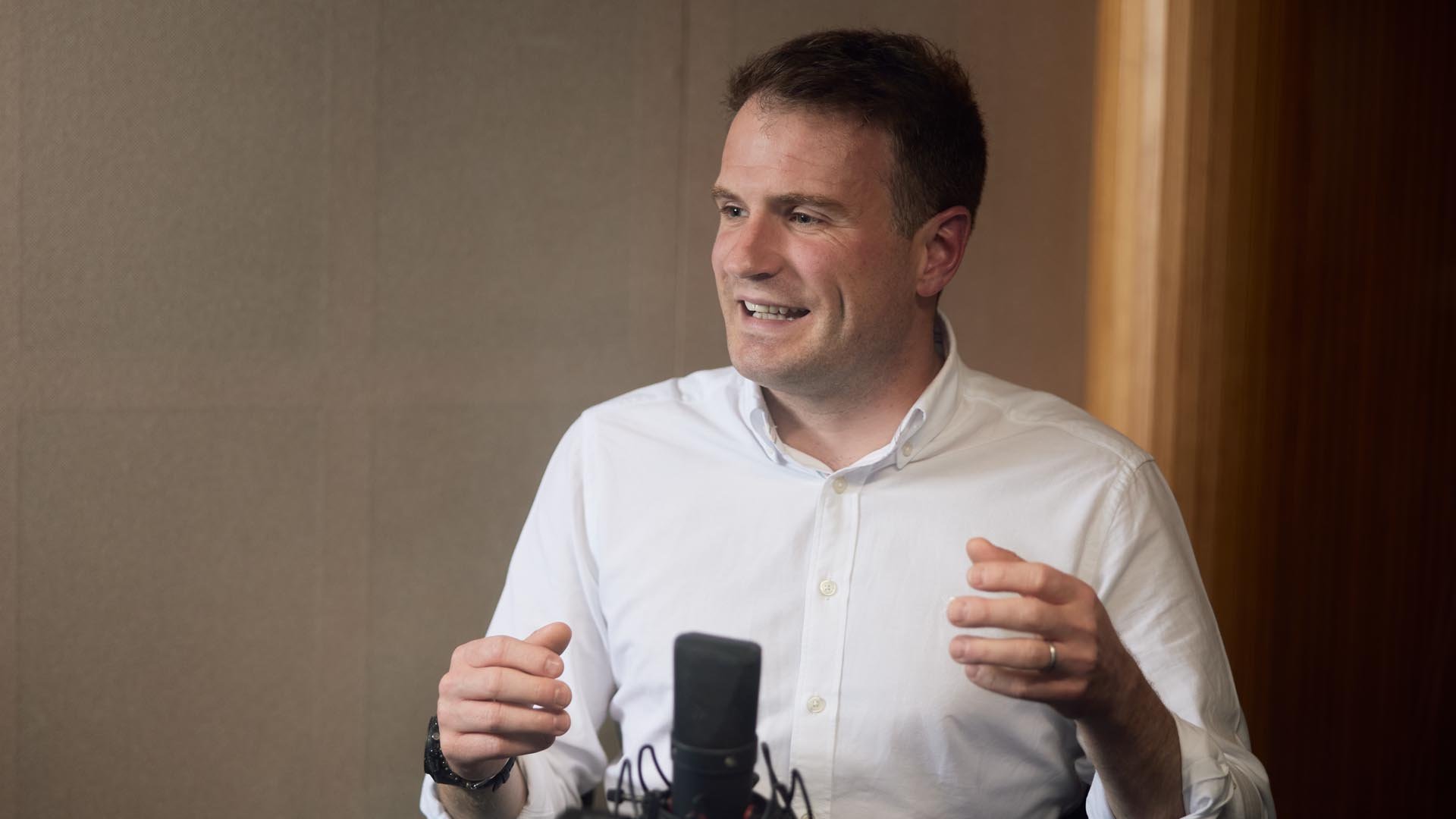Key points
- In EM we pay close attention to macroeconomics, politics, and demographics, and are willing to invest in underperforming businesses that we expect to improve
- China is the largest country in the emerging markets index and is home to some exciting growth companies, but many excellent opportunities can also be found elsewhere
- Sustainability is central to our investment process, as companies with better practices are more likely to generate strong long-term returns

© Shutterstock / Cavan Images.
Please remember that the value of an investment can fall and you may not get back the amount invested.
Amid market turmoil and a war in Ukraine, the outlook for emerging markets may appear bleak. Philip Scott, Managed Fund specialist, sat down with emerging markets investment manager, Andrew Stobart, to talk about the Fund’s emerging market holdings, and find out why we remain optimistic.
1. How does investing in emerging markets compare to investing in developed markets?
There are more similarities than differences, and the gap between the developed and developing worlds has been shrinking. A long-term investment philosophy, focused on owning growing companies, is common to all investment teams at Baillie Gifford. In emerging markets, we pay more attention to macroeconomic, political and demographic factors than we ordinarily would in developed markets. In addition, whilst we have a preference for high-quality companies in emerging markets, we are more willing to invest in poorly performing business that are expected to improve. Portfolio turnover is less than 20 per cent p.a., equivalent to an average holding period of over five years for emerging market stocks.
2. China is the largest country in the emerging markets index with an approximate 30 per cent weighting. How do you think about investing there, particularly given the significant policy and regulatory changes over the last two years?
We have a 25+ year track record of dealing with political and regulatory uncertainty in emerging markets. Our aim is to invest in companies that are on the right side of policy. In China, President Xi Jinping’s policy of ‘Common Prosperity’ has brought with it significant regulatory change, much of it aligned with the country’s broader long-term development goals. We have been working through the implications for individual companies, while being mindful of the unintended consequences. We believe there is significant upside in the likes of food delivery and local services company Meituan, ecommerce leader Alibaba and social media and gaming giant Tencent.
3. What about opportunities outside China?
While China often dominates the headlines in emerging markets, we have been really encouraged by the increasing number of exciting and differentiated businesses elsewhere. India has gone from having one of the worst mobile internet infrastructures globally to one of the best, in turn producing more private company unicorns (those valued at over $1bn) in 2021 than any country apart from the US and China. Conglomerate Reliance Industries has been at the forefront of the roll-out of 4G telephony, the digitalisation of retail and now the energy transition in India. Mercadolibre continues to be the leading ecommerce and fintech company across Latin America, as it has been for two decades. Bank Rakyat has built a network of many thousands of microlending outlets across the Indonesian archipelago and has an excellent long-term growth record with high financial returns. For the patient, active investor there is a wealth of opportunity in emerging markets beyond China.
4. How do you consider environmental, social and governance (ESG) issues when investing in emerging markets?
Sustainability has always been central to our investment process in emerging markets. Businesses engaging in practices that are harmful to society may be capable of generating attractive returns in the short term, but these returns are unlikely to be sustainable over our investment time horizon. However, we do not believe that ‘one size fits all’ and we therefore assess ESG practices on a case-by-case basis, without relying on backwards looking and formulaic screens. We also do not seek ‘perfect’ companies, preferring to consider the potential for improvement and engage with management teams accordingly. We believe this approach gives us the best likelihood of adding long-term value for clients.
5. What are you most excited about in Emerging Markets?
Our experience of investing in emerging markets since 1994 is that the only reliable driver of long-term share price performance is earnings growth. We have invested through many crises and recent elevated levels of market volatility are nothing new. Indeed, recent share price weakness for some companies belies the fact that the vast majority of the holdings are continuing to perform as we had expected in operational terms. These include copper producer First Quantum (Zambia and Panama); Brazilian oil producer Petrobras; the world’s leading semiconductor foundry TSMC; and Korea’s Samsung SDI, one of the world’s leading makers of batteries for electric vehicles and electric storage systems. With companies like these, we are very excited about the prospects for investing in emerging markets over the next decade.
Important Information and Risk Factors
The views expressed in this article should not be considered as advice or a recommendation to buy, sell or hold a particular investment. They reflect opinion and should not be taken as statements of fact nor should any reliance be placed on them when making investment decisions.
This communication was produced and approved in June 2022 and has not been updated subsequently. It represents views held at the time of writing and may not reflect current thinking.
All investment strategies have the potential for profit and loss, your or your clients’ capital may be at risk. Past performance is not a guide to future returns.
Custody of assets, particularly in emerging markets, involves a risk of loss if a custodian becomes insolvent or breaches duties of care.
The Fund invests in emerging markets where difficulties in dealing, settlement and custody could arise, resulting in a negative impact on the value of your investment.
Bonds issued by companies and governments may be adversely affected by changes in interest rates, expectations of inflation and a declinein the creditworthiness of the bond issuer. The issuers of bonds in which the Fund invests, particularly in emerging markets, may not beable to pay the bond income as promised or could fail to repay the capital amount.
The Fund’s share price can be volatile due to movements in the prices of the underlying holdings and the basis on which the Fund is priced.
Any stock examples and images used in this article are not intended to represent recommendations to buy or sell, neither is it implied that theywill prove profitable in the future. It is not known whether they will feature in any future portfolio produced by us. Any individual exampleswill represent only a small part of the overall portfolio and are inserted purely to help illustrate our investment style.
This article contains information on investments which does not constitute independent research. Accordingly, it is not subject to the protections afforded to independent research and Baillie Gifford and its staff may have dealt in the investments concerned.
All information is sourced from Baillie Gifford & Co and is current unless otherwise stated.
The images used in this article are for illustrative purposes only.
Baillie Gifford & Co and Baillie Gifford & Co Limited are authorised and regulated by the Financial Conduct Authority (FCA). Baillie Gifford & Co Limited is an Authorised Corporate Director of OEICs.
|
2018 |
2019 |
2020 |
2021 |
2022 |
|
|
Baillie Gifford Managed Fund B Acc |
6.3 |
8.4 |
0.2 |
46.4 |
-8.2 |
|
IA Mixed investment 40%-85% |
1.4 |
4.5 |
-7.8 |
26.3 |
5.4 |
Source: FE, StatPro, net of fees, total return in sterling. Class B Acc shares. The manager believes an appropriate comparison for this Fund is the Investment Association Mixed Investment 40-85% Shares Sector median given the investment policy of the Fund and the approach taken by the manager when investing.
Past performance is not a guide to future returns.
Ref: 23219 10011705




